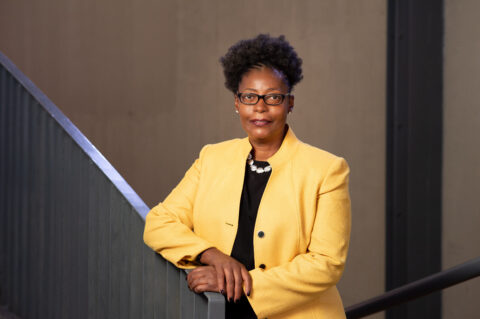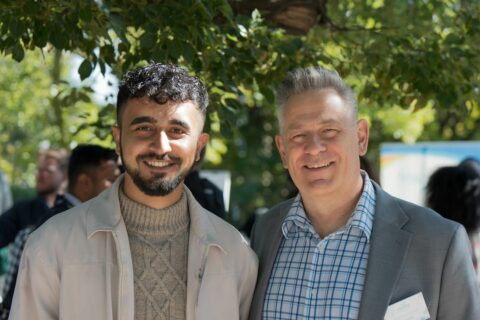Sunday Times Skills
Green Shoots
The green economy is here, and it’s only going to grow. The mounting pressures of now-irreversible climate change have finally borne at least some fruit, with countries worldwide transitioning some industries and infrastructure away from carbon-intensive models towards more environmentally sustainable ones. Business activities now attract carbon tax, as do imports and exports based on their supply chain and the resources used to produce them.
The implications of all this for our planet are positive, although much, much more urgently needs to be done to mitigate the worst impacts of climate change. The socioeconomic implications of this – particularly for how we work and the sorts of jobs we perform – will be far-reaching and difficult to predict, particularly as they come in tandem with the unprecedented disruptions wrought by the fourth industrial revolution.
Jobs will be lost. A report by the International Labour Organization, Greening with jobs, estimated that job losses due to the production and use of green energy would amount to six million. On the other hand, the report projected that this switch would create 24 million jobs: “The net increase of approximately 18 million jobs across the world will be the result of the adoption of sustainable practices, including changes in the energy mix, the projected growth in the use of electric vehicles, and increases in energy efficiency in existing and future buildings.”
However, the report emphasised the importance of skills development to a just transition. Without a proper understanding of the skills required and broad-ranging interventions to ensure these are learned, those whose jobs become redundant will be left behind, and we will struggle to fill the millions of new vacancies created, stunting the development of the green economy.
So, what skills are required for this transition, and how do we develop them?
Anticipating skills requirements
One of the challenges of reskilling for the future is that many of the roles we take for granted now may not exist.
“We cannot predict with great certainty what economic structures or ‘recipes of production’ will look like in a decade or so,” says Prof Heinrich Bohlmann, associate professor in the Department of Economics at the University of Pretoria. “However, being close to the ground, taking note of regulatory trends and talking to people working in areas that are experiencing change and those working on technologies of the future can give us good insights into what new products, their production structures and accompanying skills mix might be.”
Technological pathways and their value chains need to be analysed to highlight what skills are required, says Aradhna Pandarum, portfolio manager for just energy transition at the Council for Scientific and Industrial Research (CSIR). In the short term, government needs to map the required skills that industry demands for the green economy. “This must then be prioritised in terms of specific interventions that are required for us to mobilise skills development in the prioritised areas. There is an element of ‘train the trainers’ that will be required, hence the faster this is done, the better.”
In the long term, says Pandarum, constant monitoring and evaluation must be done to ensure impact from skills development and a change to the employment rate. “This must be done along with constant assessment of the changing economy and its demand for skills. Government should monitor the gap between skills supply and demand, and ensure that it doesn’t worsen the employment situation, but rather improves it.”
Safe bets
Regardless of the above, Pandarum says we can safely predict that the decarbonisation of the energy sector will lead the way in terms of skills needs. “CSIR analysis has shown that the major job creation from renewable energy projects – including direct, indirect and induced – in the country will emanate from the manufacturing, construction, and finance and professional services sectors.”
Prof Margaret Chitiga-Mabugu, the University of Pretoria’s dean of Economic and Management Sciences, cites a report by the Brookings Institution, A new green learning agenda: Approaches to quality education for climate action, saying: “The following are broad co-skills that will be required, particularly for transitioning to a green economy: business skills, data analysis, engineering, entrepreneurship, environmental and ecosystem management, environmental knowledge and awareness, finance, information and communication technology, innovation, marketing skills, project management, research, sales, scientific, technological and gender empowerment skills.”
Institutional evolution
Once we understand the nature of the skills required, we also need to ensure these are taught by educational institutions in a dynamic, forward-thinking manner. However, due to the fast-changing nature of technological advancement and the unpredictable effects of the move to sustainability, it is difficult for local institutions to keep up with the pace, says Pandarum. “Technology is evolving at a rate that has never been experienced before, and climate-change impacts are driving the world to implement projects at an unprecedented pace. The local education system requires much change, especially at Technical and Vocational Education and Training (TVET) level. CSIR, industry, other research institutions and the Sector Education and Training Authorities (SETAs) are working together to change this narrative and better plan for the future energy landscape, including the green energy economy.”
Pandarum adds that last year the CSIR collaboratively developed the first renewable energy TVET skills course in Nkangala TVET college with the Energy & Water Sector Education Training Authority, RES4Africa, Eskom and industry players, among others.
Prof Bohlmann agrees, but adds that universities also need to rethink some of their curricula. “The introduction of new courses, such as robotics and programming at school level, will also further improve and align the skill sets of new workers with today’s needs.”
The role of the private sector

Of course, the private sector has both a societal role to play and a vested economic interest in ensuring that future green skills requirements are met. Pandarum says the sector should create enabling environments and incentives to ensure that companies don’t just shed jobs due to their business being threatened. “This is a transition; we should work together to ensure that it is a just one for all involved and that nobody is left behind. If there are challenges, the private sector should be vocal about this to see if support can be given.”
Prof Chitiga-Mabugu echoes this sentiment, saying the private sector needs to send clear signals to government and workers detailing the skills requirements and do their best to incentivise workers to adopt and learn the necessary skills. “Of course, government needs to be responsive to these signals and also minimise any red tape for business in working with labour during the upskilling/reskilling process,” she concludes.






 Sign-up and receive the Business Media MAGS newsletter OR SA Mining newsletter straight to your inbox.
Sign-up and receive the Business Media MAGS newsletter OR SA Mining newsletter straight to your inbox.